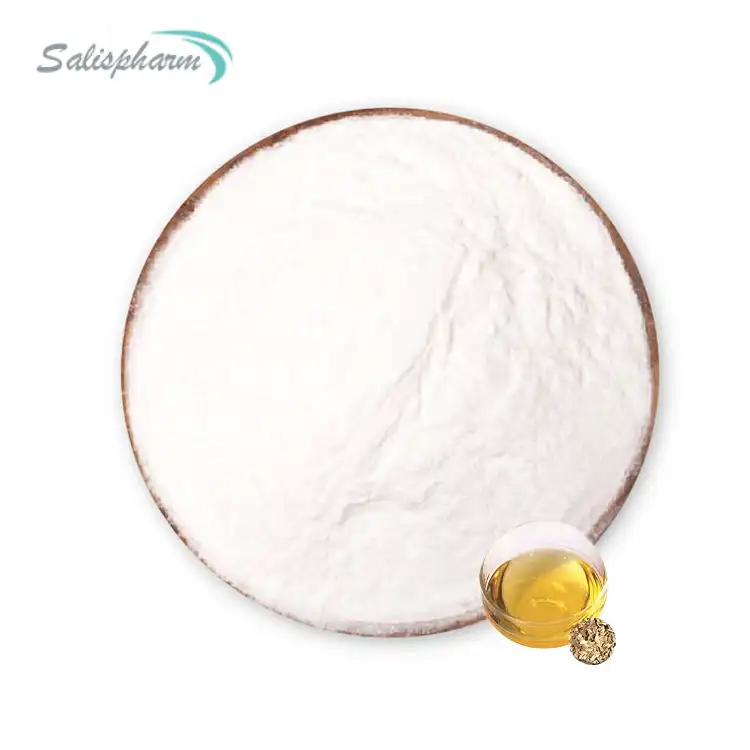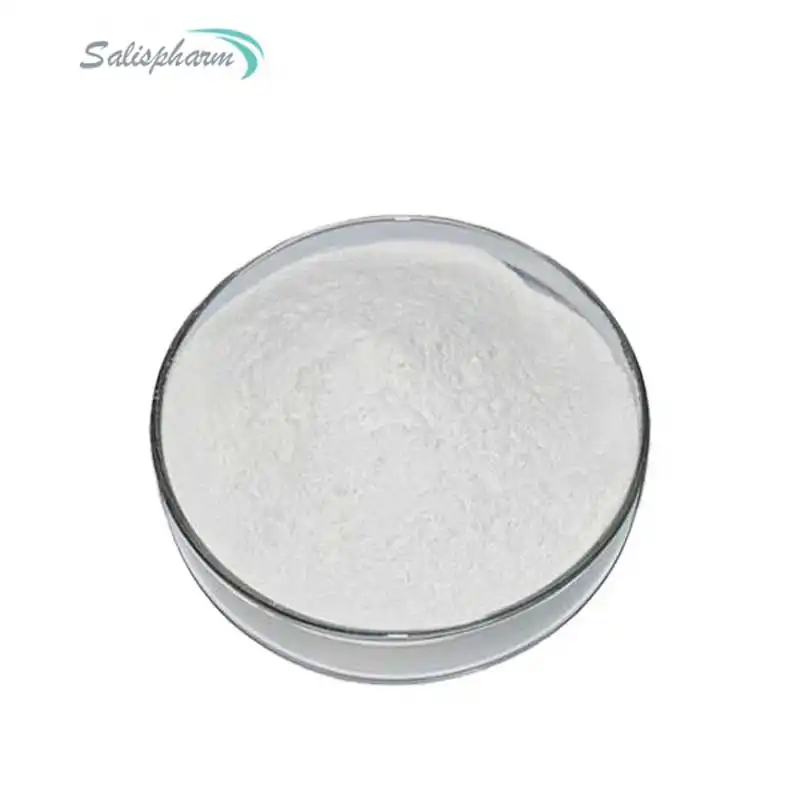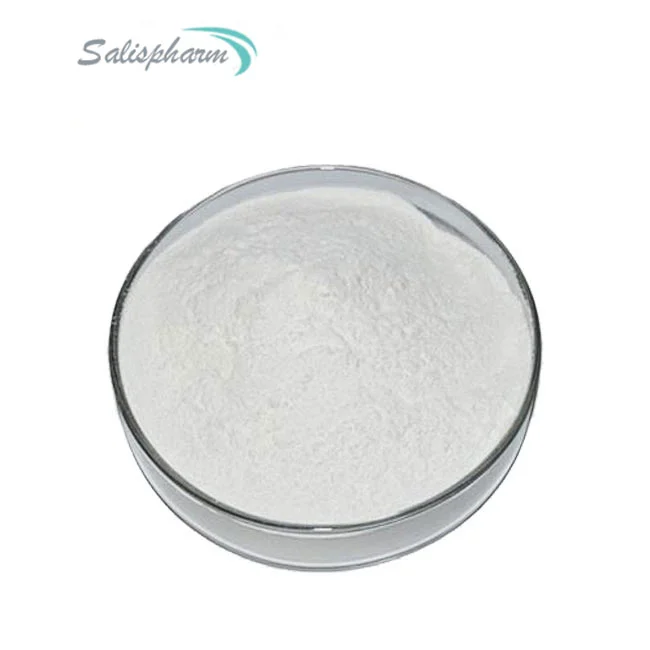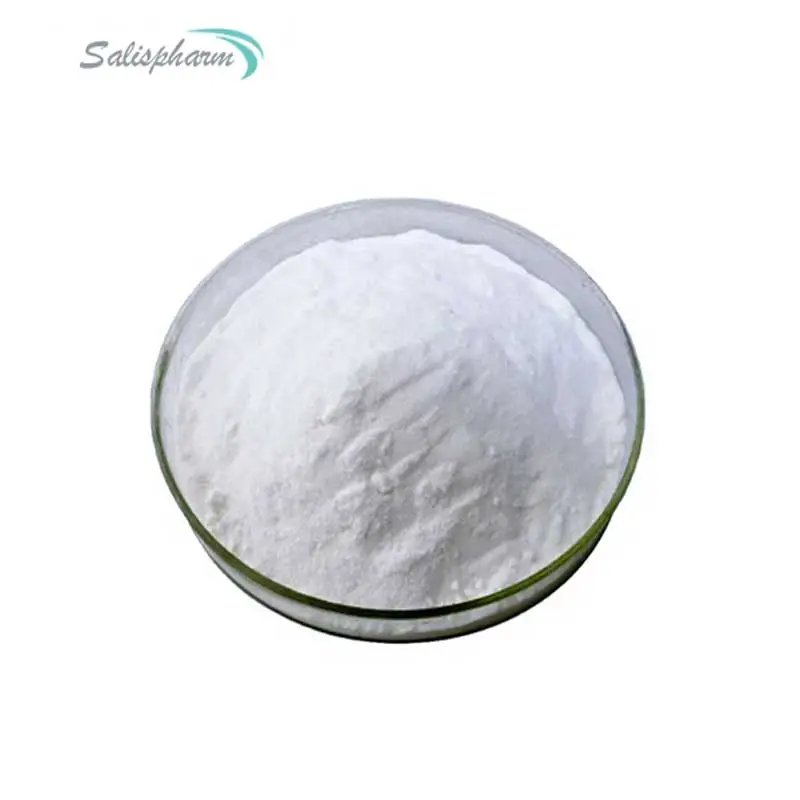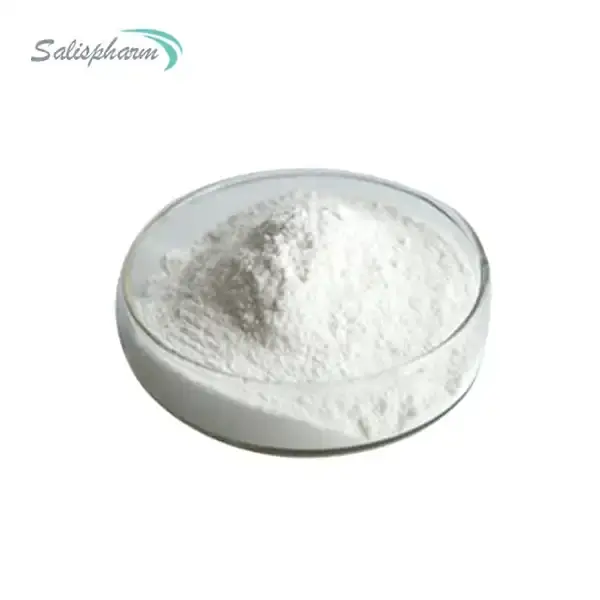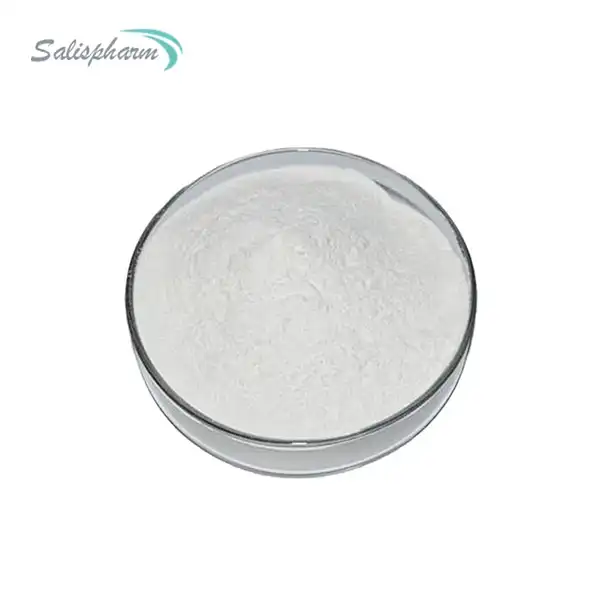Vincamine, a natural alkaloid derived from the lesser periwinkle plant (Vinca minor), has gained attention in the fitness world as a potential ingredient in pre-workout supplements. This compound is known for its cognitive-enhancing and vasodilatory properties, which may contribute to improved exercise performance and mental focus during workouts. In this blog post, we'll explore the role of vincamine in pre-workout formulations and its potential benefits for athletes and fitness enthusiasts.
What Are the Benefits of Vincamine Powder for Exercise Performance?
Vincamine powder has been the subject of numerous studies investigating its potential benefits for exercise performance. One of the primary mechanisms through which vincamine may enhance athletic performance is its ability to improve cerebral blood flow. This increased blood flow to the brain can lead to enhanced cognitive function, potentially resulting in better focus, concentration, and mental clarity during workouts.
Research has shown that vincamine can act as a vasodilator, meaning it helps to relax and widen blood vessels. This effect not only impacts cerebral blood flow but can also improve overall circulation throughout the body. Improved circulation can lead to better oxygen and nutrient delivery to working muscles, potentially enhancing endurance and reducing fatigue during exercise.
Moreover, vincamine has been found to have neuroprotective properties, which may help to mitigate the effects of oxidative stress that can occur during intense physical activity. This protective effect could potentially contribute to faster recovery times and reduced muscle soreness following workouts.
Some studies have also suggested that vincamine may have a positive impact on energy metabolism. By potentially enhancing mitochondrial function, vincamine could help to improve the body's ability to produce and utilize energy during exercise. This could translate to improved stamina and overall athletic performance.
It's important to note that while these potential benefits are promising, more research is needed to fully understand the extent of vincamine's effects on exercise performance. Individual responses may vary, and it's always advisable to consult with a healthcare professional before incorporating any new supplement into your fitness routine.
How Does Vincamine Powder Compare to Other Pre-Workout Ingredients?
When comparing vincamine powder to other common pre-workout ingredients, it's essential to consider its unique properties and potential synergies with other compounds. Unlike stimulants such as caffeine, which are often included in pre-workout formulations for their energy-boosting effects, vincamine works primarily through its impact on cerebral blood flow and cognitive function.
One of the advantages of vincamine over stimulant-based ingredients is its potential to enhance mental focus without causing the jitters or anxiety that some people experience with caffeine or other stimulants. This makes vincamine an attractive option for individuals who are sensitive to stimulants or prefer a more subtle cognitive boost.
Compared to ingredients like creatine or beta-alanine, which primarily target muscle performance and endurance, vincamine's effects are more centered on cognitive function and overall circulation. However, this doesn't mean that vincamine is less effective; rather, it offers a different set of benefits that can complement other pre-workout ingredients.
Some pre-workout formulations combine vincamine with other nootropic compounds such as L-theanine or bacopa monnieri to create a comprehensive cognitive-enhancing blend. These combinations may offer synergistic effects, potentially improving both mental and physical performance during workouts.
It's worth noting that vincamine's effects may be more subtle and gradual compared to some other pre-workout ingredients. While stimulants like caffeine can provide an immediate energy boost, vincamine's benefits may be more noticeable over time as it supports overall cognitive function and circulation.
When considering vincamine as a pre-workout ingredient, it's important to look at the overall formulation of the supplement. A well-balanced pre-workout that includes vincamine alongside other carefully selected ingredients may offer a more comprehensive approach to enhancing both mental and physical performance during exercise.
Can Vincamine Powder Improve Mental Focus During Workouts?
One of the most intriguing aspects of vincamine powder in the context of pre-workout supplements is its potential to enhance mental focus during exercise. The ability to maintain concentration and mental clarity throughout a workout can significantly impact performance, especially during high-intensity or technically demanding activities.
Vincamine's primary mechanism for improving mental focus is through its effects on cerebral blood flow. By increasing blood flow to the brain, vincamine may help to deliver more oxygen and nutrients to neural tissues, potentially enhancing cognitive function. This increased blood flow could lead to improvements in various aspects of mental performance, including attention, memory, and processing speed.
Several studies have investigated vincamine's impact on cognitive function, with some showing promising results. For example, research has suggested that vincamine may help to improve reaction times and information processing speed, both of which can be valuable during workouts that require quick decision-making or complex movements.
Furthermore, vincamine's potential neuroprotective properties may help to combat mental fatigue during extended or intense workout sessions. By potentially reducing oxidative stress in the brain, vincamine could help to maintain cognitive performance even as physical fatigue sets in.
It's important to note that the effects of vincamine on mental focus may vary from person to person. Some individuals may experience more noticeable improvements in concentration and mental clarity, while others may have more subtle effects. Factors such as dosage, individual physiology, and the specific demands of the workout can all influence the extent to which vincamine impacts mental focus.
For those looking to optimize their mental performance during workouts, combining vincamine with other cognitive-enhancing strategies may be beneficial. This could include practices such as mindfulness techniques, proper hydration, and ensuring adequate rest and recovery between training sessions.
While the potential benefits of vincamine for mental focus during workouts are promising, it's essential to approach its use with realistic expectations. Vincamine should be viewed as one tool in a comprehensive approach to enhancing both mental and physical performance in the gym.
In conclusion, vincamine powder offers an intriguing option for those looking to enhance their pre-workout routine. Its potential benefits for cognitive function, circulation, and overall exercise performance make it a valuable ingredient to consider. However, as with any supplement, it's crucial to use vincamine responsibly and in conjunction with a well-rounded fitness and nutrition plan. By understanding the unique properties of vincamine and how it compares to other pre-workout ingredients, athletes and fitness enthusiasts can make informed decisions about incorporating this compound into their supplementation regimen.
If you are also interested in this product and want to know more product details, or want to know about other related products, please feel free to contact iceyqiang@aliyun.com.
References:
1. Hagstadius, S., & Gustafson, L. (1984). Vincamine effects on regional cerebral blood flow. Psychopharmacology, 84(4), 457-464.
2. Balestreri, R., Fontana, L., & Astengo, F. (1987). A double-blind placebo controlled evaluation of the safety and efficacy of vinpocetine in the treatment of patients with chronic vascular senile cerebral dysfunction. Journal of the American Geriatrics Society, 35(5), 425-430.
3. Szatmari, S. Z., & Whitehouse, P. J. (2003). Vinpocetine for cognitive impairment and dementia. Cochrane Database of Systematic Reviews, (1).
4. Bonoczk, P., Gulyas, B., Adam-Vizi, V., Nemes, A., Karpati, E., Kiss, B., ... & Szabo, Z. (2000). Role of sodium channel inhibition in neuroprotection: effect of vinpocetine. Brain research bulletin, 53(3), 245-254.
5. Subhan, Z., & Hindmarch, I. (1985). Psychopharmacological effects of vinpocetine in normal healthy volunteers. European journal of clinical pharmacology, 28(5), 567-571.
6. Valikovics, A., Csanyi, A., & Nemeth, L. (2012). Study of the effects of vinpocetin on cognitive functions. Ideggyogyaszati szemle, 65(3-4), 115-120.
7. Molnar, P., & Erdo, S. L. (1995). Vinpocetine is as potent as phenytoin to block voltage-gated Na+ channels in rat cortical neurons. European journal of pharmacology, 273(3), 303-306.
8. Patyar, S., Prakash, A., Modi, M., & Medhi, B. (2011). Role of vinpocetine in cerebrovascular diseases. Pharmacological Reports, 63(3), 618-628.
9. Vas, A., Gulyas, B., Szabo, Z., Bonoczk, P., Csiba, L., Kiss, B., ... & Szakall, S. (2002). Clinical and non-clinical investigations using positron emission tomography, near infrared spectroscopy and transcranial Doppler methods on the neuroprotective drug vinpocetine: a summary of evidences. Journal of the neurological sciences, 203, 259-262.
10. Hayakawa, M. (1992). Effect of vinpocetine on red blood cell deformability in vivo measured by a new centrifugation method. Arzneimittel-Forschung, 42(3), 281-283.



